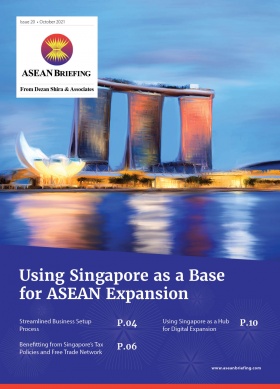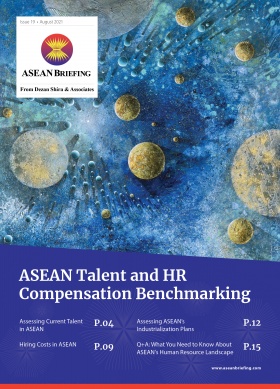Thailand Issues New Incentives to Attract Foreign Investors, Professionals, and Retirees
Foreign investors, professionals, and retirees will be able to enjoy a number of new incentives in Thailand, as the government seeks to attract high-earning overseas residents to help the country’s COVID-19 recovery.
Thailand’s cabinet passed a resolution on September 14, 2021, introducing immigration, tax, and land ownership incentives aimed at foreign investors and skilled professionals. The incentives are part of an effort to stimulate Thailand’s economy which has been badly impacted by the COVID-19 pandemic.
According to a government spokesperson, the government expects the incentives to attract over a million foreign investors and professionals within five years, contributing over 1 trillion baht (US$30 billion) to the economy.In this article, we look at what incentives will be available, and who is eligible to apply for them.
What are the incentives?
The incentives come in three categories: immigration, tax, and real estate.
Immigration
Qualified applicants can receive a 10-year long-term resident visa to live in Thailand, including for their spouses and children. Qualified applicants will also be issued an automatic work permit. This is a new type of visa that did not previously exist in Thailand.
As opposed to other types of visas, those on long-term resident visas will not have to submit written notices to relevant authorities to stay longer than 90 days in the country. Potentially, they will not be subject to restrictions on hiring foreign workers, such as the requirement that employers hire four Thai workers for every foreign one, although this remains to be determined.
Tax
Qualified applicants will be able to enjoy the same income tax rates as Thai citizens, as well as tax exemptions for income earned abroad. Further, they can apply for a 17 percent fixed income tax rate in accordance with the Eastern Economic Corridor scheme.
Land and property
Qualified applicants will be able to enjoy relaxed restrictions on foreign ownership and rent of land and property.
The incentives will be overseen by Thailand’s Office of National Economic and Social Development Council. They will be in place for five fiscal years from 2022-2026, at which point authorities will evaluate their performance and decide whether to extend them.
Potential applicants should note that while the Thai government has confirmed incentives in these areas, details in some areas, such as land and property, have not yet been made clear.
Who qualifies for the incentives?
The incentives apply to four categories of foreigners: wealthy global citizens, wealthy pensioners, work from Thailand professionals, and highly skilled professionals.
Wealthy global citizens
People with at least US$80,000 in income over the last two years and at least US$1 million in assets can qualify for the incentives. Further, they must have medical insurance covering at least US$100,000 and invest at least US$500,000 in Thai government bonds or real estate.
Wealthy pensioners
Retired pensioners with a stable pension of at least US$40,000 per year and aged 50 or older can apply. They too must have medical insurance covering at least US$100,000 and invest at least US$250,000 in Thai government bonds or real estate.
Work from Thailand professionals
Foreign professionals who work remotely from Thailand (often referred to as digital nomads), with at least US$80,000 in income over the last two years and at least five years of work experience will be eligible.
Highly skilled professionals
This category refers to professionals with at least US$80,000 in income over the last two years or US$40,000 per year who work in targeted industries, including building infrastructure, logistical systems, and digital systems, or experts and researchers who work with state agencies or as university lecturers.
Stimulating pandemic recovery
The incentives are part of an effort to stimulate Thailand’s economic recovery from the COVID-19 pandemic and encourage foreigners to travel, live, and work in the country. Over the five years of the incentives’ initial eligibility period, the government projects to collect 800 billion baht (US$24.1 billion) from investments, 270 billion baht (US$8.1 billion) from income tax collection, 70 billion baht (US$2.1 billion) from value-added tax, and 22 billion baht (US$662 million) from investment-related taxes.
The incentives are one of several measures aimed at encouraging foreigners to travel, live, and work in Thailand. Recently, Thai officials also relaxed a ban on alcohol sales in certain areas that were in place to discourage people from going to bars and clubs amid COVID-19 outbreaks. Earlier, Thailand launched the “Sandbox Reopening” program to allow certain parts of the country to loosen restrictions for foreign tourists.
To be noted, not all of the details are clear for the new incentives for foreigners, even though they were passed by the cabinet. More details about issues in need of clarification, such as what form will land incentives take and how applicants can prove their net worth, stand to surface in the months ahead.
About Us
ASEAN Briefing is produced by Dezan Shira & Associates. The firm assists foreign investors throughout Asia and maintains offices throughout ASEAN, including in Singapore, Hanoi, Ho Chi Minh City, and Da Nang in Vietnam, Munich, and Esen in Germany, Boston, and Salt Lake City in the United States, Milan, Conegliano, and Udine in Italy, in addition to Jakarta, and Batam in Indonesia. We also have partner firms in Malaysia, Bangladesh, the Philippines, and Thailand as well as our practices in China and India. Please contact us at asia@dezshira.com or visit our website at www.dezshira.com.







